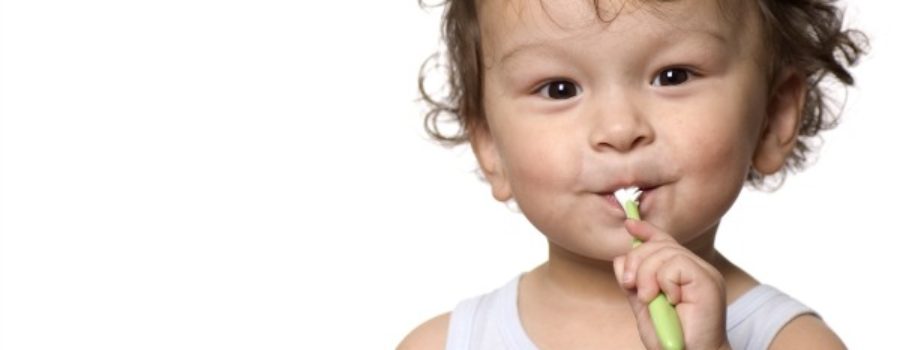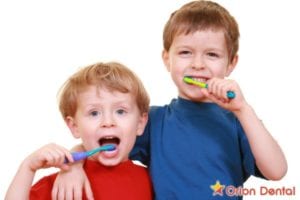There is a myth floating around out there that what happens to baby teeth doesn’t really matter. After all, they’re going to fall out anyway, right?
Technically, it’s true that the baby teeth your child will have are not permanent, however, it’s false that their health doesn’t matter.
There are three important ways that baby teeth can affect the health of the future adult teeth.
Number 1: Teething
The first experience parents and kids will have with teeth is around 3 – 9 months of age, when a baby begins teething. As each tooth erupts, there can be some pain that the child reflects to you in fussiness or an unwillingness to eat, as well as drooling. Even before this stage, it’s important to wipe your baby’s gums following feedings with a damp cloth, removing excess sugars and bacteria.
During the teething process, it’s also important to keep an eye on your child’s mouth and remaining aware of which teeth are coming in. Why? Well, baby teeth are essentially the ‘space savers’ for the future adult teeth. If a tooth was damaged or knocked out, in an accident or fall for example, it could affect the growth of the permanent tooth, contributing to crowding or crooked growth.
Any changes in your child’s teeth should be reported to your dentist and accidents where a tooth is lost or damaged should be checkout right away.
Number 2: Tooth Decay
The effects of a cavity go well beyond the affected tooth. Cavities can contribute to pain, infection, chewing problems and, if left untreated, can impact the permanent tooth that is developing below, particularly if an abscessed baby tooth infection spreads into the jaw.
Regular care including brushing, flossing and dental visits are imperative but if your child is prone to cavities, dental sealants are also an option for the back teeth, where food particles accumulate and are more difficult to reach while brushing. Use of the sealant should not, however, alter your child getting into a routine of brushing and flossing.
Baby bottle tooth decay is a specific issue related to your child going to bed with a bottle. While it might seem convenient for you, it can exacerbate tooth decay because of the almost constant contact with the liquids – milk or juice / water combo, for example. The sugars from these liquids remains on the teeth for hours at a time, damaging enamel and increasing the likelihood of cavities forming.
Number 3: Malocclusion and Shark Teeth
While technically not in specific reference to baby teeth, malocclusion is detected at the time when children are losing their baby teeth. It is defined as “the imperfect positioning of the teeth when the jaws are closed”. Between the ages of 6 and 12, as children begin losing their baby teeth and the permanent teeth start coming in, your dentist will identify if your child’s teeth are crowded or out of alignment and you can begin to investigate the possibility of orthodontia.
Another interesting phenomenon related to loss of baby teeth is the occurrence of ‘shark teeth’. While it sounds bad, shark teeth simply refers to the growth of a permanent tooth behind the baby tooth, before the latter has fallen out. It results in a double row of that tooth, not unlike a shark has, hence the name! This isn’t something to be concerned about unless the baby tooth remains in place for longer than a few months. When the baby tooth falls out, the permanent tooth should move forward on its own. If you are concerned about shark teeth or baby teeth that aren’t falling out, consult with your dentist.
Make regular visits to your family dentist a part of your children’s oral health plan. Kids love Orion Dental, and with offices conveniently located in Milton (905-636-9770) and Scarborough (416-291-0306) we’re never too far away! Call us today to book an appointment for you and your family!








